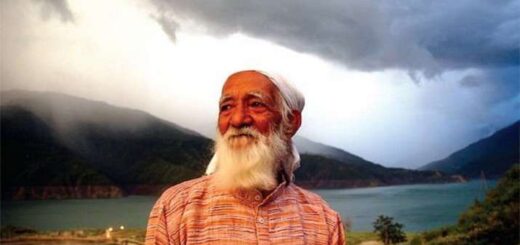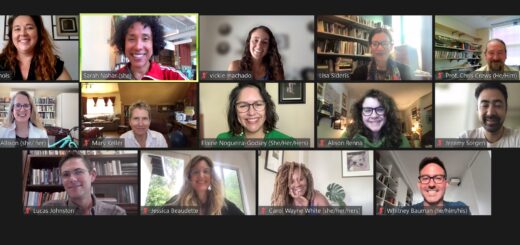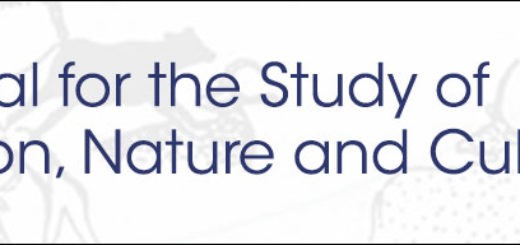Climate Skepticism and Evangelical Politics – Interview with Robin Veldman
We are excited to share this interview with ISSRNC scholar Robin Globus Veldman, author of the new book The Gospel of Climate Skepticism: Why Evangelical Christians Oppose Action on Climate Change (University of California Press, 2019). Interview by ISSRNC’s member chris crews.
I caught up recently with Professor Veldman to talk about her work on evangelicals and climate change politics and I’m excited to share the following edited interview based on that discussion.
Stay tuned for more feature interviews with ISSRNC scholars in the future.
Climate Skepticism and Evangelical Politics
ISSRNC: I want to start out with a little background for our readers. Can you give us a sense of what is at the heart of evangelical opposition to climate action, as well as the deeper issue of why many evangelicals seem to be climate skeptics or outright climate deniers?
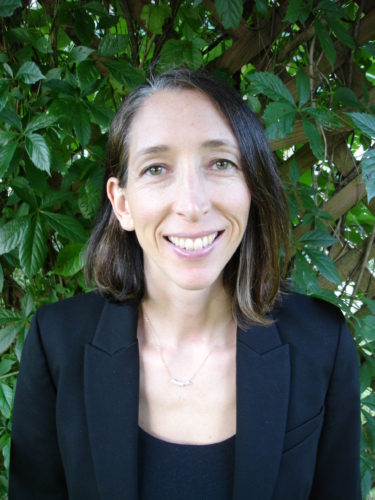
Professor Robin Globus Veldman
RV: First, let me say that I don’t think there is a single explanation that works for all evangelicals. Evangelicals are skeptical about climate change for many reasons. And it is also true that not all evangelicals are climate skeptics. For example, the PRRI’s 2014 survey found that close to a third do accept the scientific consensus and are very concerned about the issue. What is true is that white evangelicals are the most skeptical major religious group in the US, so if you ask a random evangelical what he or she thinks about climate change, that person is more likely to reject or question the scientific consensus than a mainline Protestant or a Catholic.
As I write in the book, the basic reason for this is that white evangelicals anchor the Republican Party, and that status has made them key constituents for opponents of national-level climate legislation. And because of a desire to make sure that evangelicals didn’t add their voices to those calling for action on climate change, a campaign emerged around 2008, spearheaded by leaders in the Christian Right (which is a loose network of religious organizations and political pressure groups that has worked to unify evangelicals around a conservative political agenda), to promote skepticism as the biblical position on climate change. This campaign worked alongside misinformation that has been promoted in (ostensibly) secular conservative media, so when you actually talk to evangelicals in person you’ll hear a lot of non-religious reasons for skepticism. Nevertheless, politically conservative evangelicals get what I call a “double dose” of skepticism through both politically and religiously conservative media. And that’s the fundamental reason, in my view, that they ended up being so much more likely than people in other religious groups to be skeptical of human-induced climate change.
Going back to your question about deeper reasons for skepticism, a lot of people think that evangelicals are skeptical of climate science because they’re skeptical of science in general. I disagree. I see skepticism of science as something that has made evangelicals more receptive to the arguments of climate denialists, but not as an independent driver, or in other words, not something that was always going to play a major role in driving skepticism, no matter what. In my field research I found that my informants accepted mainstream science on a lot of issues; there were just a few issues where they drew the line, most prominently evolution. Knowing all the work that has gone into presenting skepticism as the biblical view on climate change in the evangelical media, I can say with confidence that it took quite a bit of effort to connect the kinds of sentiments that evangelicals feel toward evolution to climate change; it was not an automatic reaction that lay evangelicals saw it as a threat to their faith the very first time it was in the national news. They had to be essentially taught to see it that way.
My take-away from this is that we need more nuance in the discussion of anti-science attitudes within evangelicalism. It’s too simplistic to say that people are either pro or anti-science, and framing it that way masks a lot of what is interesting about how lay evangelicals relate to science.
ISSRNC: What got you interested in writing about evangelicals and climate change? Did you originally start your research more focused on environmental or religious questions, and following from that, when did you decide you wanted to really narrow in on the specific issue of evangelicals and climate skepticism?
RV: I had been aware of and concerned about climate change since college (I was an environmental studies major), so that always seemed like a natural environmental issue to focus on. I had a very circuitous route to researching evangelicals, however. My master’s thesis was on environmental apocalypticism—in particular, how the religious and secular blend in apocalypticism associated with the environmental movement—and that led me to become interested in apocalypticism in the Christian tradition, and specifically among evangelicals, since this is one tradition where apocalypticism or prophecy belief tends to be concentrated. At the time when I was trying to figure out what to research for my dissertation, there was very little fieldwork on evangelicals’ attitudes toward climate change, and at the same time I noticed a bunch of prominent environmentalists (Al Gore, E.O. Wilson and Bill Moyers, to name a few) were claiming evangelicals didn’t care about the environmental crisis because they thought Jesus was going to return to earth soon. The evidence they gave was so slim that it was begging for further investigation, so that’s how I got started.
ISSRNC: One of your arguments in the book, and you mentioned this briefly already, is that leading figures in the Christian Right actively and vocally promoted climate skepticism as the only correct biblical position on climate issues. As you noted, “They had to be essentially taught to see it that way.” Can you tell us a little more about how this happened, and why it was so effective?
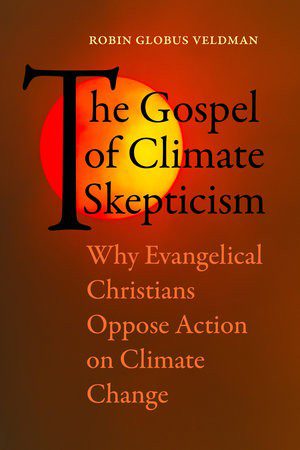 RV: They did it a little more subtly than that—they never said “this is the only correct biblical position on climate change. Anything else is heresy!” Instead, they consistently presented misinformation about climate science and the motives of climate advocates, painting them in an unsympathetic and highly suspicious light. Every so often, they would also suggest or hint that climate advocates had anti-Christian motives, and that climate science was a threat to the Christian faith. This painted skepticism as the proper view for Christians to hold (by Christians I mean evangelical Christians; they refer to themselves simply as Christians, so I’m using it the way they would use it, here). That’s what I mean when I say that it became the biblical view on climate change. For evangelicals, the biblical view is the correct view. And largely because of the way it was presented in the evangelical media, skepticism came to be seen as the normative, correct view for conservative, Bible-believing Christians to hold. There actually isn’t a strong biblical basis for climate skepticism, which is probably why they relied so heavily on presenting misinformation as well.
RV: They did it a little more subtly than that—they never said “this is the only correct biblical position on climate change. Anything else is heresy!” Instead, they consistently presented misinformation about climate science and the motives of climate advocates, painting them in an unsympathetic and highly suspicious light. Every so often, they would also suggest or hint that climate advocates had anti-Christian motives, and that climate science was a threat to the Christian faith. This painted skepticism as the proper view for Christians to hold (by Christians I mean evangelical Christians; they refer to themselves simply as Christians, so I’m using it the way they would use it, here). That’s what I mean when I say that it became the biblical view on climate change. For evangelicals, the biblical view is the correct view. And largely because of the way it was presented in the evangelical media, skepticism came to be seen as the normative, correct view for conservative, Bible-believing Christians to hold. There actually isn’t a strong biblical basis for climate skepticism, which is probably why they relied so heavily on presenting misinformation as well.
How it happened is a complicated story, and I would urge anyone who wants to understand it well to read the last chapter of my book. But to summarize, there were three key factors that pushed the Christian Right to get involved in promoting climate skepticism. In 2006, an evangelical group called the Evangelical Environmental Network launched a campaign called the Evangelical Climate Initiative, or the ECI, that 86 prominent evangelical leaders signed. Because it was so surprising to see a group normally associated with political conservatism advocating for action on this issue, it got a huge amount of attention in the secular media, contributing to this narrative that evangelicalism was “going green.” The year 2006 was also a critical time because it was in the lead up to the Obama presidency, and Obama had pledged that he was going to take action on climate change. If evangelicals were going to join the push for action, the idea was that this might give the broader coalition of environmentalists and other groups who really wanted to see legislation pass enough momentum to finally make it happen. Leaders in the Christian Right hadn’t really been saying a ton about environmental issues in the 1980s and 1990s, and it wasn’t really an issue they wanted to be talking about in 2006, because at that point they were more focused on abortion, religious liberty, and opposition to gay marriage. But when the ECI launched, that put a lot of pressure on them.
First, it got a tremendous amount of media coverage, and a lot of evangelicals consume both secular and religious media, so now their focus is being drawn to a whole different set of issues than the ones that the Christian Right wanted them to be thinking about. Second, there were a number of leaders, many of them associated with the ECI—Rick Warren is the most prominent, but also Joel Hunter and Brian McLaren—who were making the argument that the Christian Right’s time was up and it was time for a new, less politicized version of evangelicalism to emerge. The media began to pick up on this narrative, and the ECI was probably the most prominent example of how the Christian Right was losing control of the movement. So the ECI was an affront to their power that they really needed to stop. Finally, they were under pressure from coalition partners in the Republican Party—industry allies and economic conservatives—who opposed action on climate change. These folks put pressure on their colleagues in the Christian Right to stop the evangelical climate movement, which at that point was getting a huge amount of attention and looked like it might actually turn out to be a game changer.
As for why the campaign they eventually launched was effective, many leaders associated with the Christian Right run “media ministries,” meaning that they preach the gospel on television or radio. These programs have audiences in the thousands or millions, and a lot of the programs were already in the “talk” genre, meaning they discussed the news of the day from a Christian perspective. So it was a simple and effective way of fighting back against the ECI to start questioning climate science on these programs. They didn’t do this immediately, though. They tried at first to work behind the scenes, writing to the board of directors of the National Association of Evangelicals, for example, but they weren’t able to have the effect they wanted there. The “greening of evangelicalism” narrative got even more powerful in 2008 when another climate initiative emerged in the largest evangelical denomination in the country, the Southern Baptist Convention. At that point they were really between a rock and a hard place if they wanted to maintain control of the movement, so they launched a media campaign to promote climate skepticism.
Well, that was not the short answer I thought it was going to be! But it’s actually just scratching the surface of the story I tell in Chapter 8 of my book. It’s a fascinating story, to me at least.
ISSRNC: You note in the epilogue to your book that Evangelicals have long been painted as having their environmental attitudes shaped by religious doctrine, an idea reinforced by the “Lynn White thesis”, which argued evangelicals are less environmentally concerned due to scripture and beliefs about human dominion over nature. Contrary to this common view, you argue: “In the case of climate change, skepticism was not simply what happened when evangelicals considered the issue in light of scripture, but in part the result of certain evangelical leaders and pundits having an interest in portraying skepticism as the scriptural view.” Can you tell us more about how you came to this conclusion, and why rethinking what you call the “Lynn White thesis” can help us gain a more nuanced understanding of how religion and ecology interact?
RV: You ask such great questions! Well, I was trained at the University of Florida in the field of religion and nature/ecology, but because so much of the previous work on evangelical attitudes toward the environment had been quantitative, that ended up being the literature that I was responding to in the book. I think most of us in religion and nature/ecology by now know that Lynn White’s thesis had a lot of problems, and also that it was greatly misinterpreted (Matthew Riley has done a fabulous job of showing this). In my view one of the places it has been misinterpreted most egregiously is in the quantitative literature. White says in his famous article (“The Historical Roots of our Ecologic Crisis”) that everyone, whether they are Christian or not, was affected by the anthropocentrism of the Christian tradition, because it became so foundationally embedded in our cultural worldview. Yet social scientists in the mid-1980s started using regression analyses to try to see if Christians were less environmentally friendly than Jews or other religious groups! The way they “operationalized” his thesis (which means the questions they used to try to empirically verify his hypothesis) were just so far off base in terms of what White was actually arguing that it is almost funny. When you add on top of that all the critiques of White that have come out over the years, it’s amazing how much of an effect his thesis continues to have in the quantitative literature.
Anyway, evangelicals were always the one group that seemed to fit White’s hypothesis (or fit the misinterpreted version of it that circulated in the quantitative literature). Many quantitative studies have found that evangelicals are less environmentally concerned than other religious groups. And White’s thesis seemed like it could explain this finding. One of the hallmarks of evangelicalism is a high regard for the authority of scripture, so as the theory goes, they are less environmentally concerned because they take seriously the injunction in Genesis to subdue and have dominion over the natural world. But of course, people arguing that forget—and this is a no-brainer from a religious studies perspective; it’s even in the introductory textbooks!—scriptures don’t just straightforwardly tell people how to act. There are always practices of scriptural interpretation that are historically constituted that shape what people pay attention to and what message they take from particular passages. By the end of my research, I was thoroughly convinced that you cannot understand evangelicals’ perceptions of the environment and climate change without looking very closely at the history of the tradition, and in particular, its political entanglement—which is a phenomenon that is fairly unique to the United States. The idea that you could create some regression analysis that was going to determine the source of evangelicals’ environmental attitudes without understanding their history, especially after everything that happened after 2006 with the huge amount of attention that climate change was getting in evangelical circles, became increasingly unpersuasive to me.
Lynn White Jr.’s article is a touchstone in our field, and I even argued recently in a book review for the JSRNC that we should stop talking about it, given how many of its assumptions have been overturned (I’m not the first to have made this argument, of course!). But in reality, so many people—even people outside the academy, because White’s article was so widely circulated when it came out—understand evangelicalism’s environmental teachings through the prism of “the Lynn White thesis” that I felt it was important to address in the book. Since evangelicals were one of the only cases where you could still argue that the “Lynn White thesis” held true, I felt it was necessary to emphasize that it was inadequate even for evangelicals.
ISSRNC: There have been some important figures from within the evangelical community, such as figures like Katherine Hayhoe and the Young Evangelicals for Climate Action (YECA) that have tried to be a voice in the climate wilderness, so to speak. You spent a lot of time among evangelicals while doing fieldwork. What is your sense of the state of this internal struggle for the hearts and minds of evangelicals today? Are people like Hayhoe and the YECA making an impact, or does the conservative media strategy you mentioned earlier continue to drown out dissenting voices?
RV: I did my research in 2011 and 2012, when Dr. Hayhoe was much less well known and I don’t think YECA had started yet, either, or at least I was unaware of it. If anything, people would have been talking about the Evangelical Environmental Network’s work on the ECI, but even that was not something that any of my informants brought up! (That was one of the first clues that the secular media wasn’t necessarily driving the conversation, at least where I was doing my research). Anyway, today people like Dr. Hayhoe and those working for the YECA are doing a lot, but my sense is that it is still an uphill battle to get their message out, when conservative media and evangelical media both tilt heavily toward climate skepticism and have done so for over a decade at this point. Still, I am very curious to know what generational differences there may be in terms of how evangelicals view climate change. Hopefully we’ll be able to see some more studies coming out about that soon, giving us a better sense of YECA’s impact. I would add that Dr. Hayhoe is very effective at helping people better understand climate change pretty much wherever she goes, so the real challenge there is getting her message to enough people. It seems to always come back to the media, in other words.
ISSRNC: Can you tell us a little about how you see your work fitting into the sort of questions that many ISSRNC scholars are interested in? How do you connect your work to a broader audience who might not see the intersections of religion, nature, and culture as that important?
RV: Echoing what I said at the ISSRNC panel at the AAR this year—where I got to talk about Dan McKanan and Sarah McFarland Taylor’s fascinating books Eco-alchemy and Ecopiety, I think we should be thinking not only about where religion and nature are, but where they aren’t. Our field has probably not looked enough yet at apathy, disengagement, and even animosity in religious communities. This is not to denigrate the research that has been done, but in terms of trying to understand barriers, I think it is really critical to be looking beyond the places where religion and environmental concern do intersect. That’s how I see my work fitting in.
In terms of the broader public, I think a lot of the public who aren’t interested in or paying attention to debates in our scholarly field are still interested in politics and policy, and when you study evangelicals and climate change, it sucks you right to the heart of some pretty powerful political-religious cleavages going on in this country. Anyone interested in understanding contemporary American politics will find something interesting in the story of evangelical engagements in climate change. That would be my pitch, anyway!
ISSRNC: Finally, for anyone interested in learning more about these issues, do you have 2-3 resources you would recommend that people could use as entry points to learn more, in addition to your new book?
RV: For those of us interested in the intersection of evangelicals and environmental concern, we’re really spoiled for options at the moment. For a quick snapshot of the backlash against climate change, there’s really no better source that Lydia Bean and Steve Teles’ 2015 report for the New America Foundation “Spreading the Gospel of Climate Change.” Laurel Kearns has written many insightful articles on this topic over the years; that’s another first stop for anyone who wants to dig into this from an academic perspective (one of my favorites is “Noah’s Ark Goes to Washington;” I really like her sociological analysis). More recently, NPR did an incredible story called “What Would Jesus Drive” this fall that is a great way to catch up quickly. And lastly, in 2017, Splinter dug up some really important information about how Christian climate denial is funded. That’s a must read/must assign if you are studying or teaching this topic.
ISSRNC: Are there any other thoughts you want to share?
RV: Just that as someone who first joined the ISSRNC as a graduate student, I’m glad that it continues to be such a great place to share ideas. I feel really grateful to have ISSRNC folks as my conversation partners over the years, and I hope more and more scholars will join us so we can keep debating, asking new questions, and exploring new territory.
ISSRNC: I want to thank you for taking the time to talk to us today!
My pleasure, Chris! Thanks for these great questions. I look forward to continuing the conversation with you and other ISSRNC folks.
About the Author
Robin Globus Veldman is an interdisciplinary environmental studies scholar whose research examines how religious beliefs and cultural identity shape attitudes toward the natural world. She is Assistant Professor of Religious Studies at Texas A&M University. You can follow her work online @RobinGVeldman.

